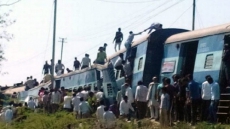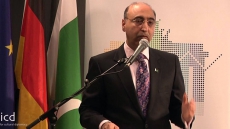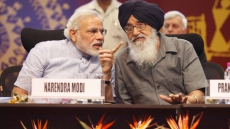The Muslim population in India registered a marginal growth of less than a percent to reach 17.22 crore in 2011, while the Hindu population also declined by roughly the same to touch 96.63 crore, according to census data on religion released on Tuesday.
The data on population by religious communities of census 2011, released by the Registrar General and Census Commissioner, said Hindus constitute 79.8 percent and Muslims 14.2 percent of the population.
The overall growth rate of population from 2001 to 2011 was 17.7 percent, while community wise it was 24.6 percent for Muslims, 16.8 for Hindus, 15.5 percent for Christians, 8.4 for Sikhs, 6.1 percent for Buddhists and 5.4 percent for Jains.
The data was released almost four years after the census, and comes just months before the assembly polls in Bihar.
Officials said the data is released once it is ready and some data pertaining to the census was yet to be released.
Parties such as Samajwadi Party, Rashtriya Janata Dal and Janata Dal-United were demanding release of the caste census.
Of the total population of 121.09 crore in 2011, Hindus were 96.63 crore (79.8 percent), Muslims 17.22 crore (14.2 percent), Christians 2.78 crore (2.3 percent), Sikhs 2.08 crore (1.7 percent), Buddhists 0.84 crore (0.7 percent), Jains 0.45 crore (0.4 percent), other religions and persuasions (ORP) 0.79 crore (0.7 percent).
"The distribution is total population by six major religious communities namely, Hindu, Muslim, Christian, Sikh, Buddhist, Jain besides 'Other Religions and Persuasions' and 'Religion not stated'," the home ministry release said.
The data showed that 0.29 crore (0.2 percent) of the population had not stated its religion.
The release said the proportion of Muslim population to total population in 2011 had increased by 0.8 percentage points while there had been no significant change in the proportion of Christians and Jains.
"The proportion of Hindu population to total population in 2011 has declined by 0.7 percentage points (PP), the proportion of Sikh population has declined by 0.2 PP and the Buddhist population has declined by 0.1 PP during the decade 2001-2011," the release said.
Reacting to the release of data, JD-U leader K. C. Tyagi said census data on religion should have been released along with the caste data.
"What purpose would it serve? The government should come up with caste data as it would have helped the government work for the weaker sections of various castes," he said.
Kamal Farooqui, former chairman of the Delhi Minorities Commission, said the data will help the government identify communities which are backward.
"This is a good policy of the government to release census data on the basis of religious communities. It will help the government identify religious communities which are economically backward. The government can take steps for their development," Farooqui told IANS.
Vishwa Hindu Parishad (VHP) spokesperson Surendra Jain said it was a "cause of concern that population of Muslims was increasing with such rate", and family planning should be promoted among them.
Out of the total population of 102.8 crore (or 1.028 billion) in the country as at the 2001 Census, the Hindus were 82.7 crore (or 827 million) in number and constituted 80.5 percent of the population of the country.
The Muslim population stood at 13.8 crore (or 138 million) comprising of 13.4 percent of the population.
The next in size are Christians (2.4 crore or 24 million), followed by Sikhs (1.9 crore or 19 million), Buddhists (79 lakh or 7.9 million), Jains (42 lakh or 4.2 million) and those following ORP including tribal religions etc. (66 lakh or 6.6 million).
In terms of growth of different religious communities, Hindus showed a decline over the previous decade, their population growing by 20.3 percent during 1991 and 2001 as compared to 25.1 percent during 1981-91.
The Muslim population on the other hand, grew by 36 percent during 1991-2001, compared to 34.5 percent during 1981-91.
Among Buddhists also, there has been a sizeable decline in the growth rate from 35.3 percent during 1981-91 to only 24.5 percent during 1991-2001.
Though there is slight increase in the growth rate of Christians (from 21.5 percent to 22.6 percent), there is noticeable decline of Sikh growth rate from 24.3 percent in 1981-91 to only 18.2 percent during 1991-2001.
Most prominent in the 2001 census data released is the growth rate of Jains (26 percent) during 1991-2001 compared to their growth of only 4.6 percent during the previous decade 1981-91.





